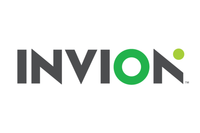Sierra Oncology, (NASDAQ: SRRA) has released its financial and operational results for 2016.
Sierra Oncology, (NASDAQ: SRRA) has released its financial and operational results for 2016.
As quoted in the press release:
“We relaunched as Sierra Oncology in January 2017, with a stated focus on developing oncology drugs targeting the DNA Damage Response (DDR) network. Recently, we successfully transferred sponsorship of the two ongoing Phase 1 clinical trials for our lead DDR drug candidate SRA737 to the company, which enabled us to submit protocol amendments aimed at enhancing both of these studies,” said Dr. Nick Glover, President and CEO of Sierra Oncology. “In particular, as synthetic lethality due to Chk1 inhibition has been linked to certain classes of genetic alterations, we plan to focus enrollment in these trials on prospectively-selected patients predicted to most likely derive benefit from SRA737 treatment based on the genetics of their tumors. A preliminary update from the SRA737 clinical trials is anticipated to be available around the end of 2017.”
“We believe SRA737 has the opportunity to expand beyond the scope of PARP inhibitors, and we have ambitious plans for developing this potential best-in-class Chk1 inhibitor. In February 2017, we raised additional capital to facilitate advancing SRA737 into the next wave of its development. Beyond enhancing the current monotherapy and chemotherapy combination trials, this will involve preparing for potential combination studies of SRA737 with PARP inhibitors and immuno-oncology agents,” added Dr. Glover.
Potential SRA737 Monotherapy Trial Enhancements
SRA737 is currently being evaluated in two clinical trials in patients with advanced cancer. The first trial is intended to evaluate SRA737’s potential to induce synthetic lethality as monotherapy. Sierra intends to amend the monotherapy clinical trial protocol in order to evaluate the preliminary efficacy of SRA737 in subjects with tumors identified to have genetic aberrations hypothesized to confer sensitivity to Chk1 inhibition. Additionally, Sierra intends to modify the study to assess SRA737’s clinical activity across a number of cancer indications that harbor these genetic mutations in order to determine potential patient selection strategies for further clinical development.
Following the anticipated approval and activation of the planned protocol amendment, an algorithm based on genetic selection will be employed in order to guide patient selection. The algorithm is intended to define patient enrollment where the subject’s tumor has a confirmed minimum of two different types of genetic abnormalities. These could include tumors with a deleterious mutation in a key tumor suppressor gene, such as TP53, and at least one of the following:
- a loss of function or deleterious mutation in the DNA damage response pathway such as ATM, BRCA1, BRCA2, or another gene in the DNA damage response pathway implicated in Chk1 pathway sensitivity;
- a genetic indicator of replicative stress, defined as gain of function or amplification of CHEK1 or ATR or other related gene; or
- a gain of function mutation or amplification of an oncogenic driver such as MYC, RAS, or another gene implicated in Chk1 pathway sensitivity.
Cancers that are predicted to have a high prevalence of genetic aberrations hypothesized to confer sensitivity to Chk1 inhibition are planned to be evaluated in the amended clinical trial within tissue-specific expansion cohorts. These include, for example, cohorts of subjects with:
- previously treated metastatic colorectal cancer;
- platinum-resistant ovarian cancer;
- metastatic castration-resistant prostate cancer;
- advanced non-small cell lung cancer; and
- head and neck squamous cell carcinoma.
Potential SRA737 Chemotherapy Combination Trial Enhancements
Sierra intends to enhance the chemotherapy combination clinical trial underway by modifying the clinical trial design in order to evaluate the preliminary efficacy of SRA737 in expansion cohorts comprising subjects with tumors identified to have genetic aberrations hypothesized to confer sensitivity to Chk1 inhibition. The company intends to employ a similar genetic selection algorithm to that defined in the monotherapy protocol. Specifically, the company plans to enroll subjects with bladder cancer and pancreatic cancer into genetically-selected dose expansion cohorts, as (i) bladder cancer and pancreatic cancer are predicted to have a high prevalence of genetic aberrations hypothesized to confer sensitivity to Chk1 inhibition and (ii) gemcitabine is often an important component of the standard of care treatment for these indications.
Year-End 2016 Financial Results (all amounts reported in U.S. currency)
Research and development expenses increased to $33.9 million for the year ended December 31, 2016 from $26.4 million for the year ended December 31, 2015. These increases in 2016 were primarily due to a $7.0 million upfront fee due to CRT Pioneer Fund LP (CPF) for the exclusive license of SRA737, the recognition of a $2.0 million fee due upon the successful transfer of two ongoing clinical trials in accordance with the SRA737 license agreement and a $0.9 million upfront fee paid to Carna Biosciences, Inc. for the exclusive license of SRA141. The remaining increase was attributable to a $4.5 million increase in personnel-related costs, a non-recurring $2.2 million restructuring charge related to estimated close-out expenses for PNT2258, and an $0.7 million increase in other research costs and allocated overhead expenses. These were partially offset by a $6.7 million decrease in third-party manufacturing costs and a $3.1 million decrease in clinical trial costs primarily due to the halting of further investment in PNT2258.
General and administrative expenses increased to $14.2 million for the year ended December 31, 2016 from $9.5 million for the year ended December 31, 2015. This increase was primarily due to a $2.3 million increase in personnel-related costs and fees incurred in support of corporate growth, a $1.1 million increase related to business development activities, a $0.8 million increase in allocated overhead expenses and a $0.5 million non-recurring restructuring charge.
Total operating expenses for the year ended December 31, 2016 were $48.1 million compared to $35.8 million for the year ended December 31, 2015. Total operating expenses included non-cash stock based compensation of $5.5 million for the year ended December 31, 2016 and of $3.2 for the year ended December 31, 2015, respectively.
For the year ended December 31, 2016, Sierra Oncology incurred a net loss of $47.9 million compared to a net loss of $53.3 million for the year ended December 31, 2015. During the year ended December 31, 2015, net loss included a non-cash charge related to the change in fair value of preferred stock warrants of $17.4 million.
At December 31, 2016, Sierra Oncology had $109.0 million in cash and cash equivalents compared to $150.2 million in cash and cash equivalents at December 31, 2015. At December 31, 2016, there were 30,370,946 shares of common stock issued and outstanding and stock options to purchase 6,543,654 shares of common stock issued and outstanding.
Subsequent to the end of the year, Sierra Oncology paid the $2.0 million fee due to CPF for the successful transfer of the two ongoing clinical trials for SRA737. In February 2017, Sierra Oncology completed an underwritten public offering of 21,847,636 shares of common stock, raising aggregate net proceeds of $27.3 million from the offering, net of underwriting discounts and commissions and estimated offering expenses. We believe that our existing cash and cash equivalents will be sufficient to fund our current operating plans through approximately mid-2019.
About Sierra Oncology
Sierra Oncology is a clinical stage drug development company advancing next generation DNA Damage Response therapeutics for the treatment of patients with cancer. Our lead drug candidate, SRA737, is a highly selective, orally bioavailable small molecule inhibitor of Checkpoint kinase 1 (Chk1), a key cell cycle checkpoint and central regulator of the DNA Damage Response (DDR) network. In cancer cells, replication stress induced by oncogenes (e.g., MYC and RAS) combined with loss of function in tumor suppressors (e.g., TP53 and ATM) results in persistent DNA damage and genomic instability. Targeted inhibition of the remaining components of the DDR network such as by SRA737 may be synthetically lethal to cancer cells and have utility as a monotherapy in a range of tumor indications. Chk1 is also believed to facilitate tumor cell resistance to chemotherapy or radiation-induced DNA damage and the combination of SRA737 with these standards-of-care may provide synergistic anti-tumor activity. SRA737 is currently being investigated in two Phase 1 clinical trials in patients with advanced cancer.
Sierra Oncology is also advancing SRA141, a potent, selective and orally bioavailable small molecule inhibitor of cell division cycle 7 kinase (Cdc7) undergoing preclinical development. Cdc7 is a key regulator of both DNA replication and the DDR network, making it a compelling emerging target for the potential treatment of a broad range of tumor types. For more information, please visit www.sierraoncology.com.



